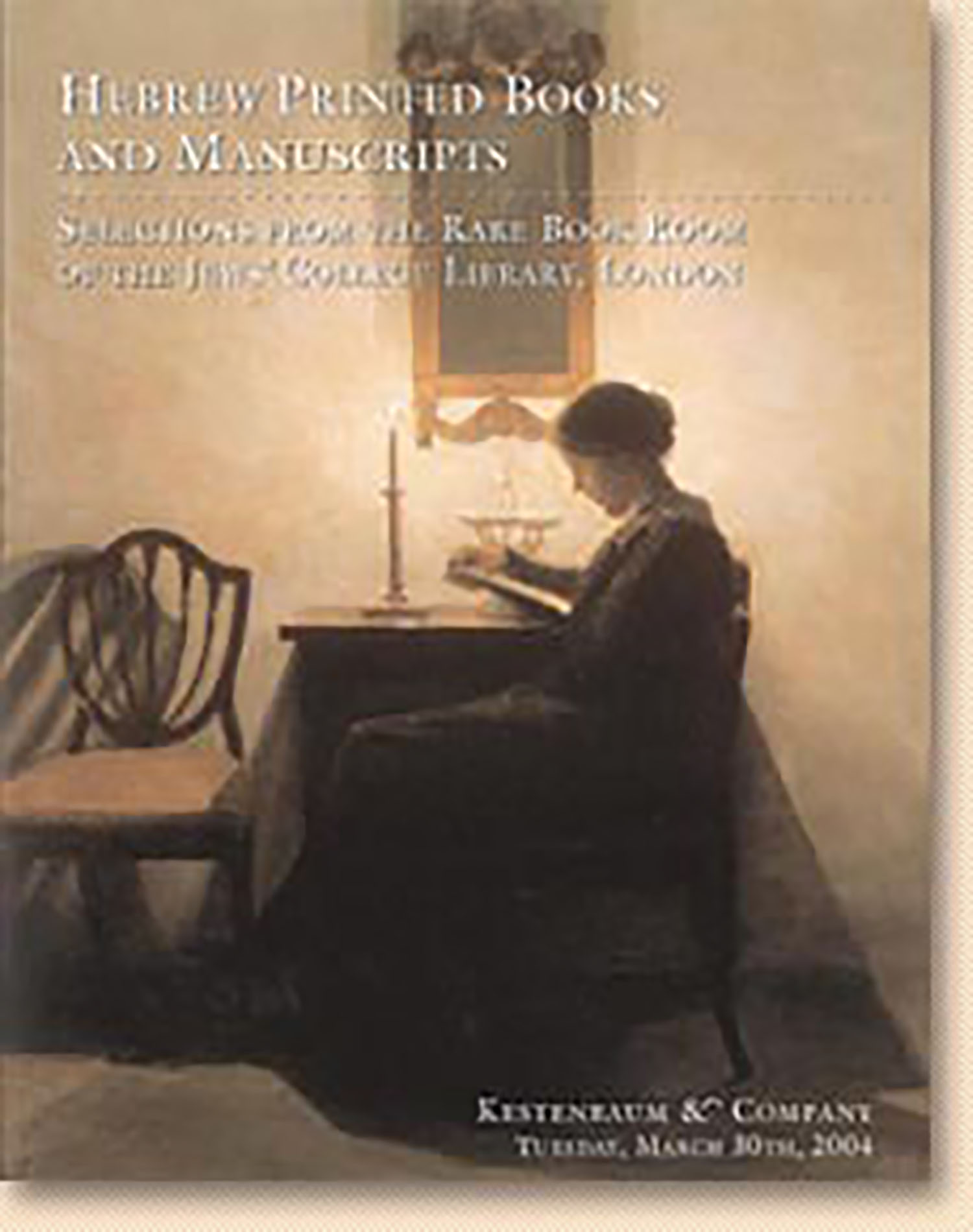BACHAYE BEN ASHER.

AUCTION 23 |
Tuesday, March 30th,
2004 at 1:00
Hebrew Printed Books & Manuscripts from The Rare Book Room of the Jews College Library, London The Third Portion
Lot 41
BACHAYE BEN ASHER.
v.p: v.d
Est: $3,000 - $4,000
PRICE REALIZED $3,900
Rabbenu Bachaye was a kabbalist of the school of R. Solomon ben Adret of Barcelona. He is most famous for his comprehensive commentary to the Torah, but also for his topical Kad ha-Kemach and Shulchan shel Arba. Extensive research into his thought was undertaken by Ephraim Gottlieb, see The Kabbalah in the Writings of R. Bahya ben Asher (Jerusalem, 1970)
Hai Gaon was the last of the great Geonim of Mesopotamia. Only fragments of the Arabic original of this work are extant. This Hebrew rendering of Mishpatei Shevu’oth was compiled by an unknown translator. Hai Gaon was opposed to the absolute annulment of vows on the eve of the Day of Atonement and his formulation of the Kol Nidrei prayer reads; “Of all vows....which we have vowed..... and have omitted to fulfill either through neglect or under constraint, we pray that the Lord in Heaven may absolve and pardon us.”
Meir Ben Samuel of Shcherbreshin's rhymed account of the Chmielnicki massacres (1648-49) was written in Cracow during the summer of 1650. The author personally witnessed the massacres while in Zamosc and collected many stories from refugees shortly after the attacks. Though structured in the same manner as accounts of the First Crusades, the author’s poems are nevertheless credited with a higher degree of historical accuracy than other 17th century chronicles - given his proximity to the events. See EJ, XI col. 1256
